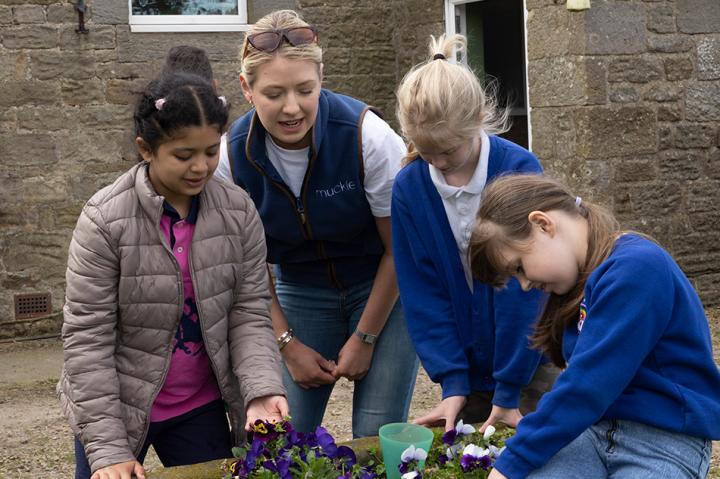The power of collaboration: Unlocking the ‘win-win’ in charity and corporate partnerships

Corporate partnerships hold considerable value for charities and not-for-profit organisations; the Charities Aid Foundation (CFA) estimates that UK businesses contribute around £4.bn in total to the sector. But it’s not just about money. Through meaningful collaboration, both sides can benefit hugely, leading to a real impact on our communities and environment. But what does that mean in practice?
Traditionally, these relationships have been (and often still are) centred around donations; however, businesses and charities alike are realising the greater value of longer-term strategic partnerships.
We're one of those businesses. The firm has been developing its environmental, social, and governance (ESG) strategy for decades and, in 2023, became the first law firm in the North East and Cumbria to receive B Corp Certification™.
Hugh Welch, who heads up our ESG strategy, discusses how working closely in partnership with local charities has benefited the firm, its people, and its partners.
Mutually beneficial partnerships
By definition, a partnership is mutually beneficial. The real value of partnerships between businesses and charities goes beyond a one-off fundraising initiative; it’s shifting from a “we’re here to help you” mindset to one that recognises the potential of the charity sector to offer value back to the business.
For example, many of our people act as trustees and governors, and we actively encourage this as a firm. Many of our younger lawyers are taking up trusteeships, and it is a fantastic opportunity for them to not only use their legal skills to help a charity but also develop useful board-related skills to support their own professional development in strategy, governance, leadership, and business management.
Volunteering is another area that has traditionally been seen as ‘one-sided’, with only the charities seeing any value. However, research has shown that people who carry out regular volunteering experience higher levels of mental well-being than those who never volunteered. Improved mental health in the workplace has been shown to improve productivity, performance, attendance, staff retention and morale – what business wouldn’t want that? Everyone working at Muckle gets two days a year to volunteer; it’s important that we encourage first-hand connections between our people and local charities, as it’s also a fantastic way to see the tangible impact we can have on our local communities.
It’s a part of doing business
Being a responsible business isn’t just a nice-to-have—it’s a must. Clients, employees and stakeholders expect businesses to play their part in tackling social and environmental issues, so I would suggest that this should be a key part of any strategy. It is a potential differentiator and an opportunity to compete on grounds beyond just price, particularly if your business is bidding for contracts in the public sector.
The public sector is the biggest purchaser of goods and services in the UK, and most, if not all, tenders have social value requirements built in. Anyone wanting to supply the public sector must detail the economic and social benefits they will create through the delivery of the contract. Many charities are working directly with communities most impacted by various issues – so who better for a business to ask about what they could do to create or add value? Having those pre-existing relationships with charities and community groups makes delivering on those social value commitments that much easier.
Making funding go further
As our strategy has developed over the years, we’ve looked at moving beyond simple donations to working more closely with local charities to support lasting change through shared goals and values.
That isn’t to say financial help isn’t important; funding will always be a major priority for charities as the cost of providing services becomes more expensive and the need in our communities becomes greater. Our Muckle Fund at the Community Foundation has been active since 2002, and in that time, we’ve given almost 750 grants to local charities. In 2024, we supported 30 separate charities, four of which we’d given grants to in the previous two years.
Being a responsible business is an important part of modern business strategy. Collaborating with charities will not only create better social and environmental impact but also help build stronger relationships with stakeholders and improve long-term business success.
Read our B Corp 2024 review to learn about some of the charities we've worked with.
If you’d like to speak to Muckle about its journey, contact Hugh Welch at [email protected]
